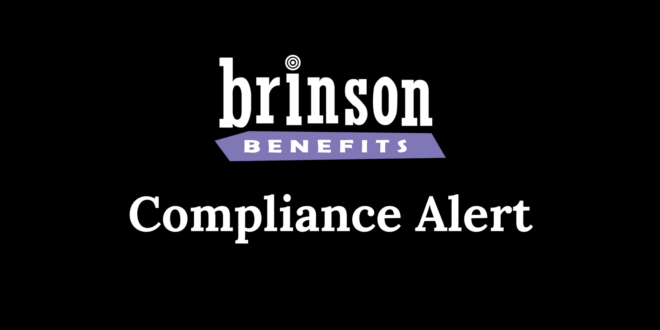House Passes AHCA Bill in First Step to Repeal and Replace the ACA | Brinson Compliance

It is widely anticipated that in its current state the AHCA is unlikely to pass the Senate. Employers should continue to monitor the text of the bill and should refrain from implementing any changes to group health plans in response to the current version of the AHCA.
The AHCA makes numerous changes to current law, much of which impact the individual market, Medicare, and Medicaid. Some provisions in the AHCA also impact employer group health plans. For example, the AHCA removes both the individual and the employer shared responsibility penalties. The AHCA also pushes implementation of the Cadillac tax to 2026 and permits states to waive essential health benefit (EHB) requirements.
The AHCA removes the $2,500 contribution limit to flexible health spending accounts (FSAs) for taxable years beginning after December 31, 2017. It also changes the maximum contribution limits to health savings accounts (HSAs) to the amount of the accompanying high deductible health plan’s deductible and out-of-pocket limitation. The AHCA also provides for both spouses to make catch-up contributions to HSAs.
The AHCA provides for a “continuous health insurance coverage incentive,” which will allow health insurers to charge policyholders an amount equal to 30 percent of the monthly premium in the individual and small group market if the individual failed to have creditable coverage for 63 or more days during an applicable 12-month look-back period. This provision is slated to begin in 2019, or in the case of a special enrollment period, beginning in the plan year 2018. The AHCA also allows states to obtain a waiver and underwrite policies for individuals who do not maintain continuous coverage.
The AHCA would also return permissible age band rating (for purposes of calculating health plan premiums) to the pre-ACA ratio of 5:1, rather than the ACA’s 3:1. This allows older individuals to be charged up to five times more than what younger individuals pay for the same policy, rather than up to the ACA limit of three times more.
It is unknown at this time if the AHCA can pass the Senate, or what might be changed in the text of the bill in order to earn votes in an attempt to pass the bill.
5/4/2017

